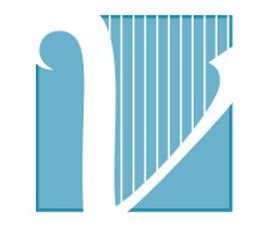FAQs
How much does a harp cost?
The average price of a lever harp is between $2,500 to $5,000 while a full size pedal harp is $15,000 to $20,000. We sell a wide variety of new and used harps and offer a a variety of financing options. Please contact us for more information.
How much do harp lessons cost?
According to the Harp Column magazine, the national average price for a private harp lesson is $54 per hour, depending on the location and teacher. We have several harp teachers in both of our showrooms or we can connect you with harp teachers in your area.
Can I rent a harp?
Yes! We offer an extensive Rent-to-Own program for new and used lever harps. Our flexible and affordable rental program allows you to trade instruments while maintaining rental credit and we also offer generous trade-up options, should you decide to purchase a pedal harp. A limited number of pedal harp rentals are also available. Credit approval and contract required.
Do you offer financing?
Yes! We offer financing through Allegro Acceptance, a company solely devoted to helping customers purchase the musical instrument of their dreams. After a 10% down payment, affordable monthly payments of up to 120 months are scheduled and there is no penalty for early payoff. Credit approval and contract required.
Can you ship a harp?
Yes! We use reliable ground freight for domestic shipping and air freight for international shipments. Extreme temperatures may delay shipments for the safety of your instrument. The safest way to ship a harp is in a heavy cardboard container with tightly fitted foam inserts.
Can I trade in my harp?
We offer a generous trade in program that allows you to trade-in your lever harp towards the purchase price of a new or used pedal harp. While we honor the Lyon & Healy Bounty Program, Virginia Harp Center allows you to trade-in towards the purchase of a pedal harp of a different manufacturer than that of your lever harp. Please contact us for more information.
Will you sell my used harp?
Yes, we can sell your lever or pedal harp as part of our consignment program, which provides extensive exposure on our showroom floor and online presence along with a hassle free way to sell your harp. Every consignment harp is carefully appraised so that we can determine the best price and complete any necessary maintenance, such as restringing or regulation, before it is made available for sale. We act on your behalf to set a fair price, advertise, and sell your instrument in a timely manner. Contact us for a consignment fees and more information.
What is your return policy?
Harp Purchases
For sight unseen purchases, you may return an instrument within 7 days from receipt of the harp but you are responsible for the cost of shipping, insurance and a 10% restocking fee. Any harps tried and purchased in the showroom may not be returned unless a manufacturing defect is found. If a manufacturing defect is found, the harp may be repaired or replaced at the manufacturers discretion according to the terms of the warranty. The purchaser is responsible for shipping both directions on returned harps. Special Order and consignment harps may not be returned.
Music, Strings and Accessories
All sales are final. Should a new string break within 14 days from the purchase, we will replace it at no additional cost.
Will you reserve a harp for me?
Yes! We will reserve a harp for you for 14 days with a deposit of $250 for pedal harps and $100 for lever harps. The deposit is non-refundable but is applicable to the purchase price of the harp. Unfortunately, harps without a confirmed deposit may be sold at any time.
What kind of music can you play on the harp?
The harp is a versatile instrument being used for classical, Celtic, folk, Bluegrass, pop, rock, jazz, and world fusion music. Modern technological advancements of the instrument have allowed the presence of the harp to extend into far reaching venues and fit seamlessly into any type of music.
What are harp strings made of?
Depending on the instrument, harp strings are typically made from natural cow gut, nylon, steel bass wires or fluorocarbon. Different types of harps use a wide variety of materials for the strings to provide an authentic sound with the ideal string tension.

